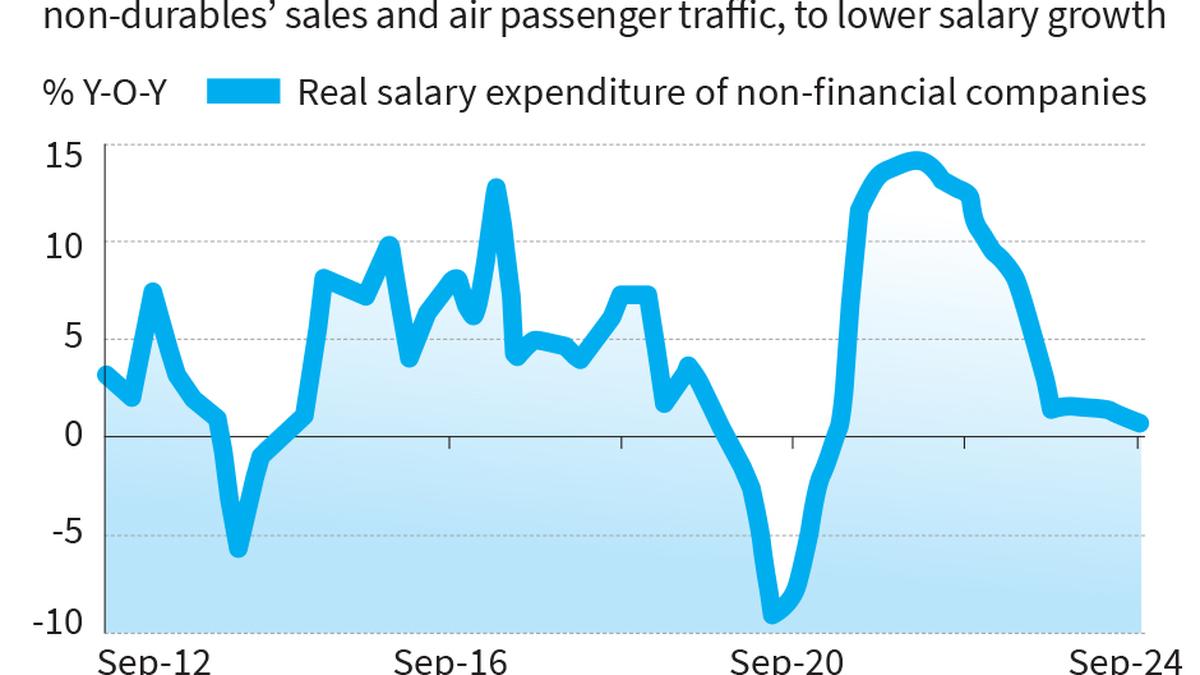
Cyclical slowdown? Nomura thinks so
The Hindu
Nomura economists predict India's economy will slow below 6.7% due to weak urban demand and emerging risks.
India’s economy has likely entered a cyclical growth slowdown and growth may slip below 6.7% in the face of emerging risks, Nomura economists reckoned, noting that weak urban demand is likely to stay insipid amid high interest rates and moderating wage growth.
“Urban consumption indicators have been softening lately… We believe this weakness in urban demand is likely to continue,” Nomura’s economists Sonal Varma and Aurodeep Nandi said in a note on Monday. They linked this to lower real salary hikes, fading pent-up demand and tight credit conditions.
“We believe India’s economy has entered a cyclical growth slowdown. Coincident and leading growth indicators point to a further moderation in GDP growth and the RBI’s forecast of 7.2% for 2024-25 is overly optimistic, in our view,” they said. Nomura has projected GDP growth of 6.7% this year and 6.8% in 2025-26, but the note said downside risks to this forecast are rising.
Companies are scaling down their salary outlays, the research note pointed out. “When deflated by the urban inflation, real salary and wage expenditure growth of listed non-financial corporates – a proxy for real urban wages – has moderated to 0.8% year-on-year in Q2 FY25 from 1.2% in Q1 FY25, and is down from 2.5% in FY24 and 10.8% in FY23. This likely reflects a mix of weaker nominal salary growth and a leaner workforce,” they concluded.
“Additionally, the post-pandemic surge in pent-up demand has faded, monetary policy is tight and the RBI’s macroprudential crackdown on unsecured, frothy credit is being reflected in the slowdown in personal loans and lending growth by non-banking finance companies,” the economists averred, following up on an October 17 report which said ‘the growth glass looks half empty’ for India.

Air India has signed an agreement with Bengaluru Airport City Limited (BACL), a subsidiary of Bangalore International Airport Limited (BIAL), to develop a built-to-suit facility for the AME program that will feature modern classrooms, well-equipped laboratories for practical training and a team of qualified trainers.










